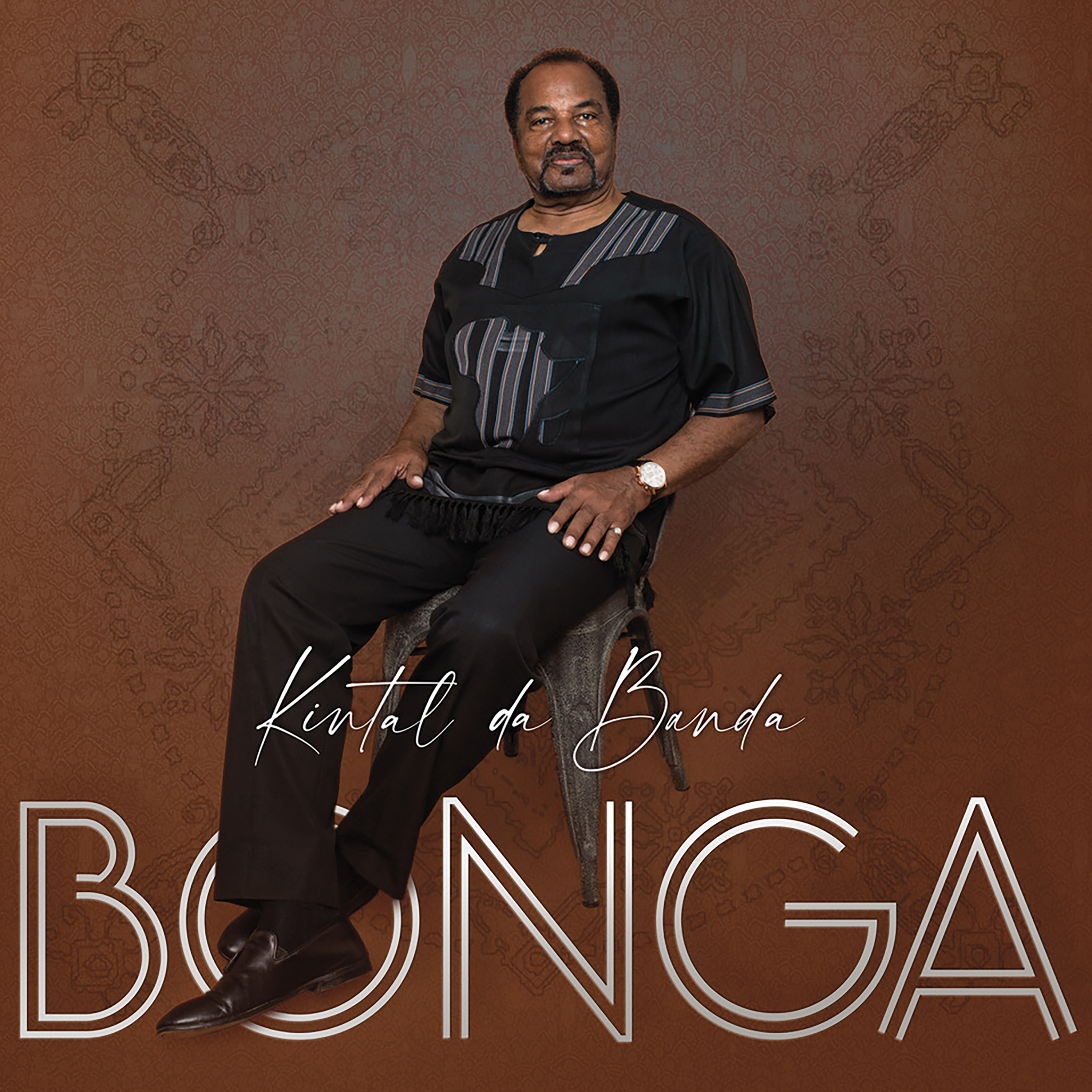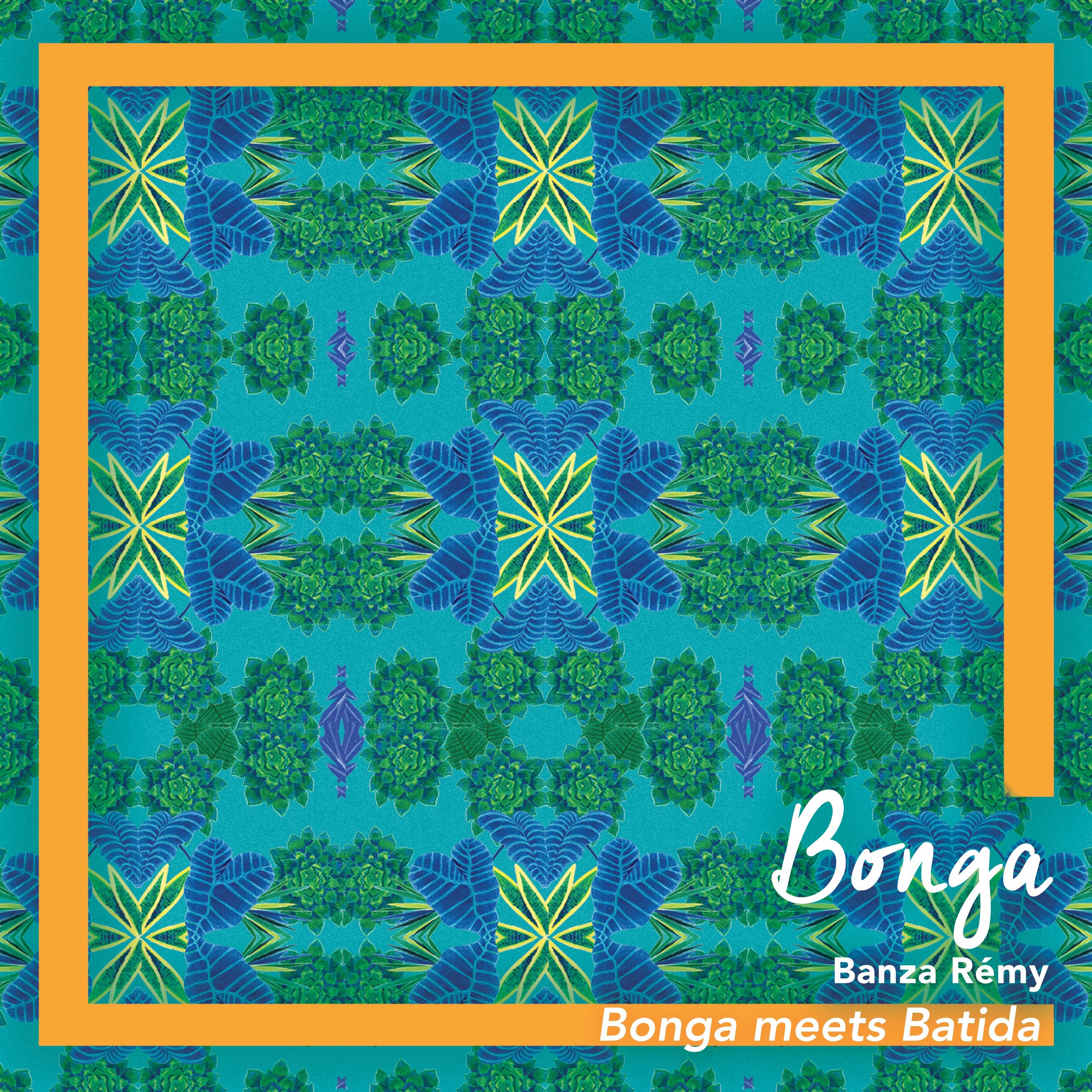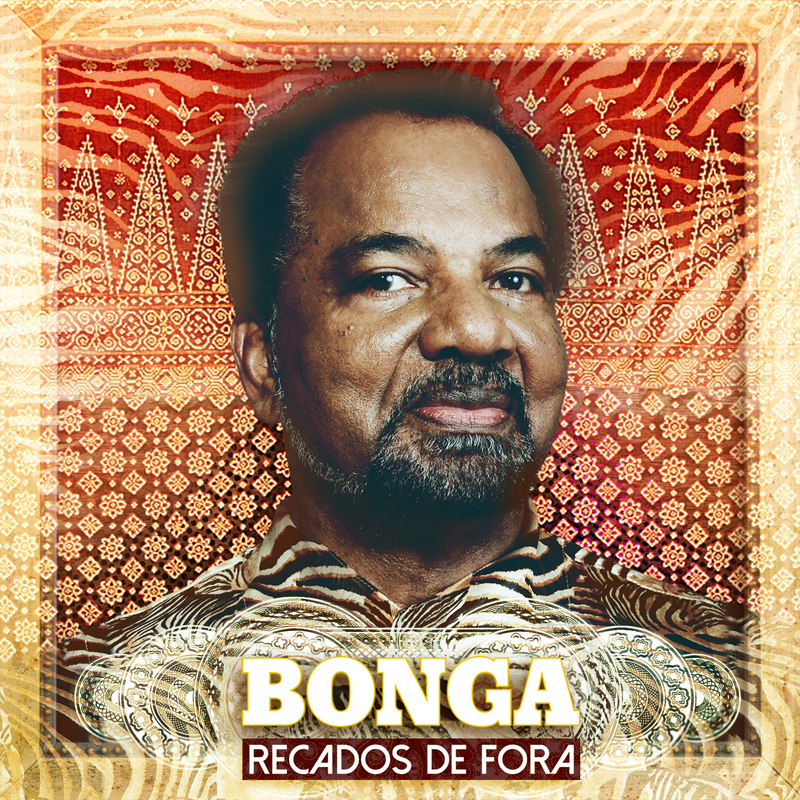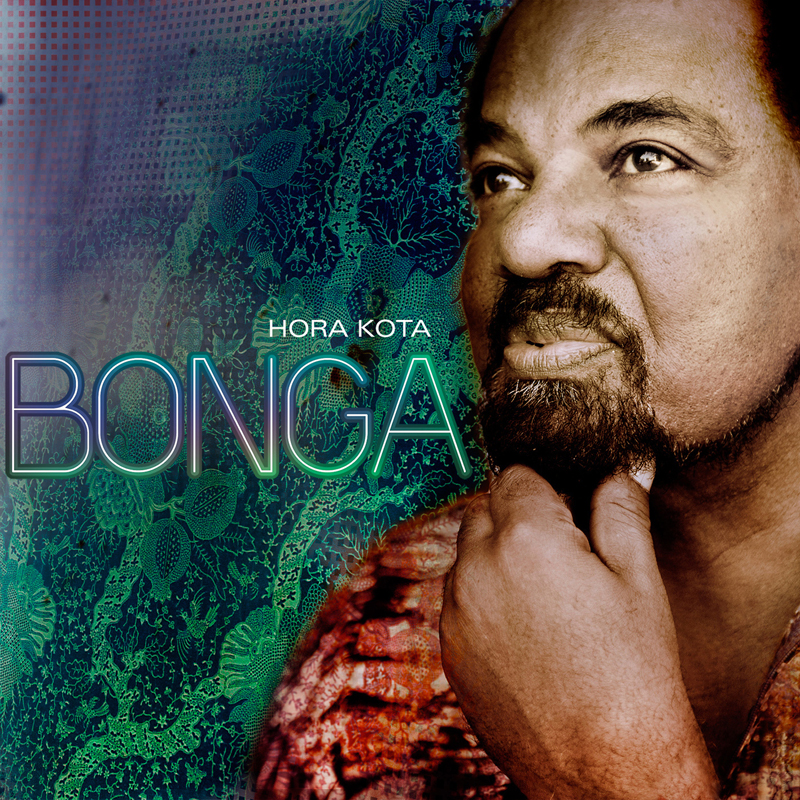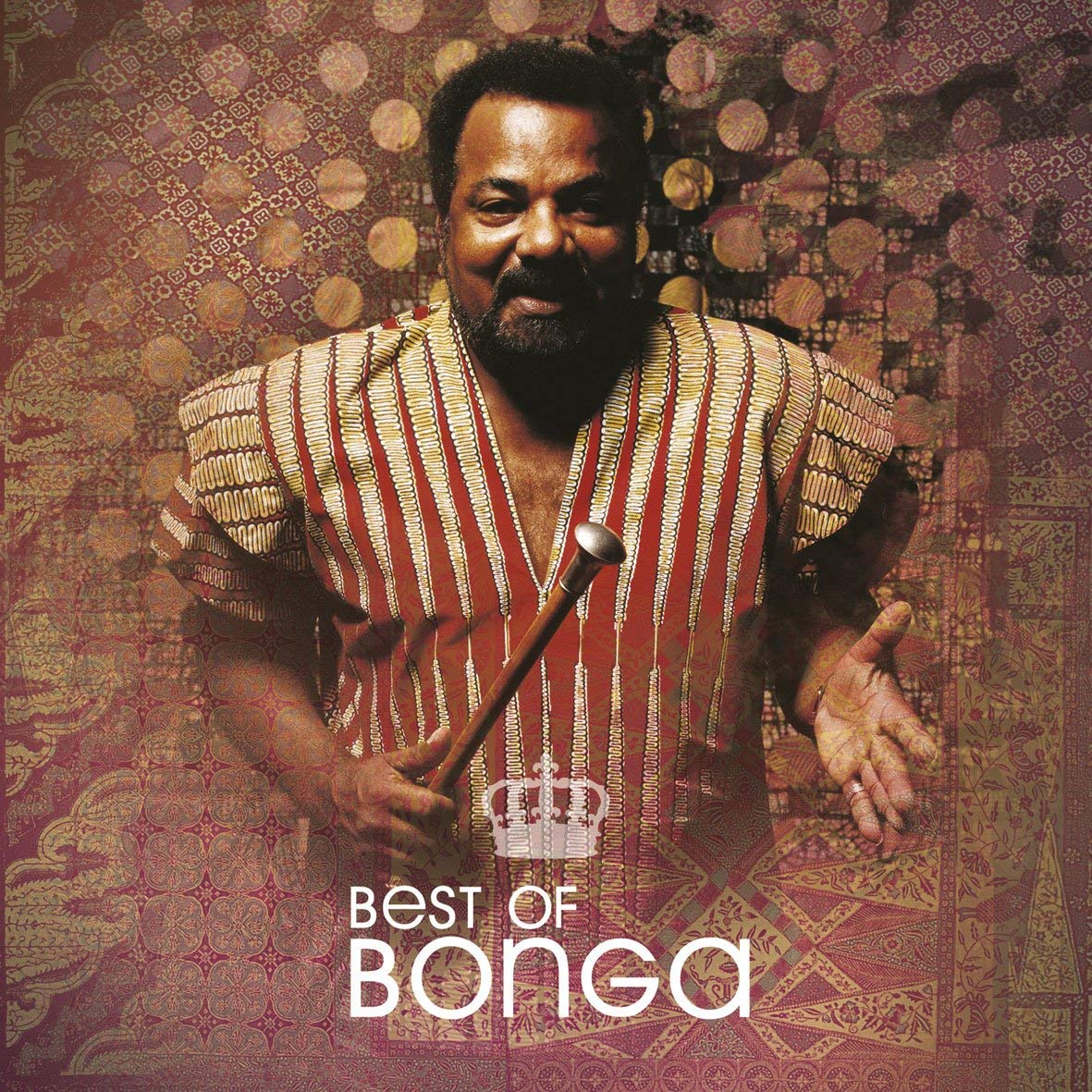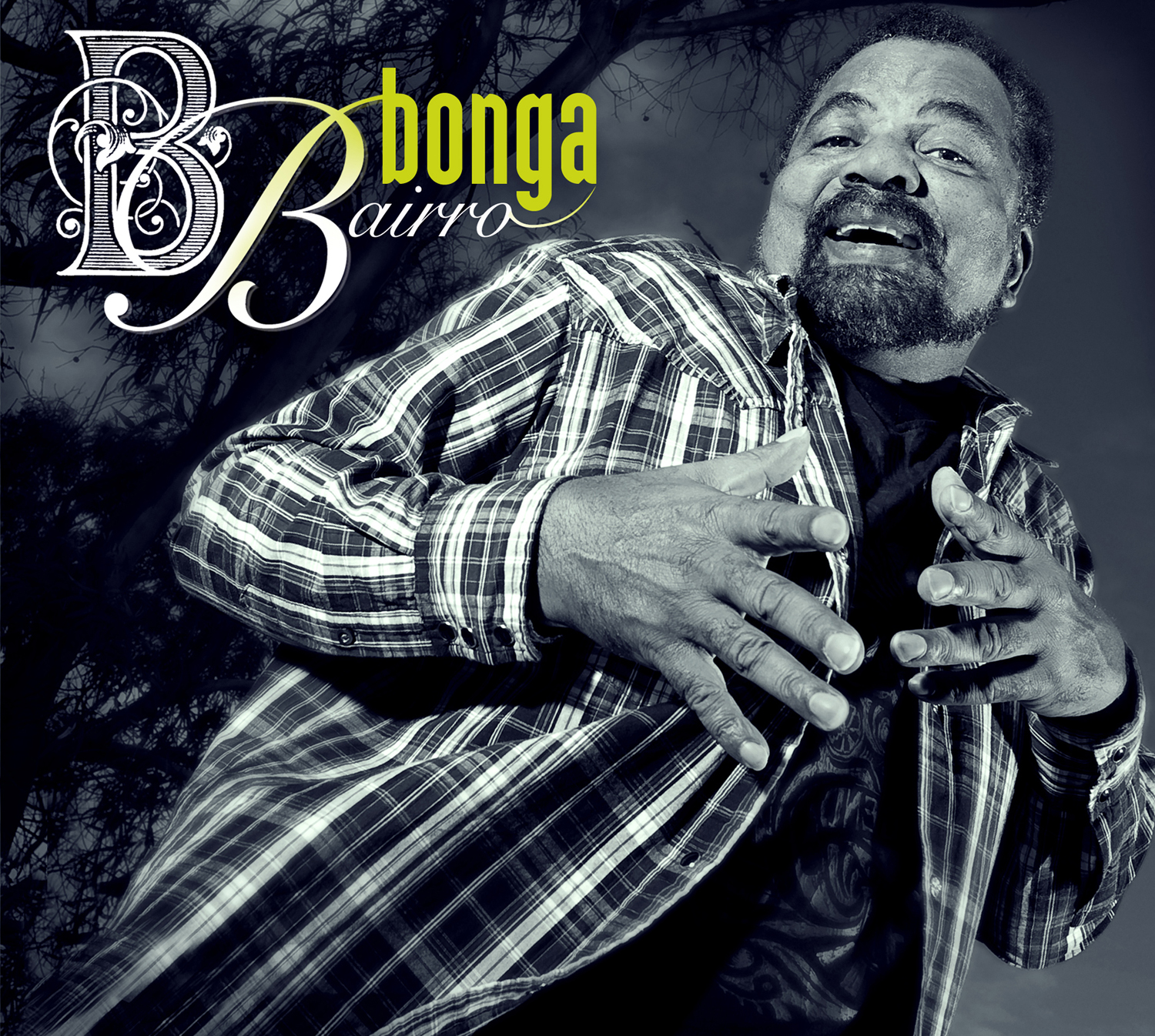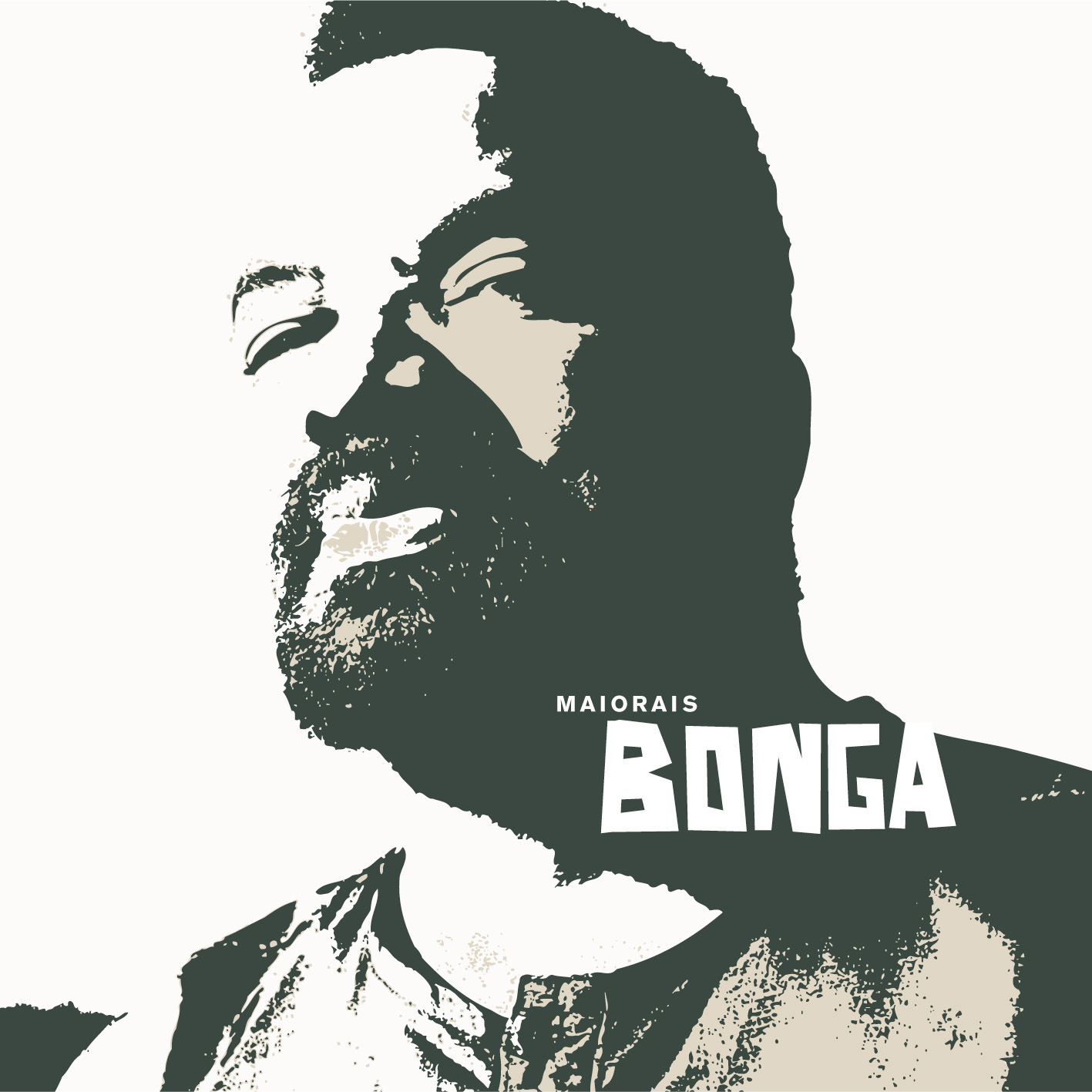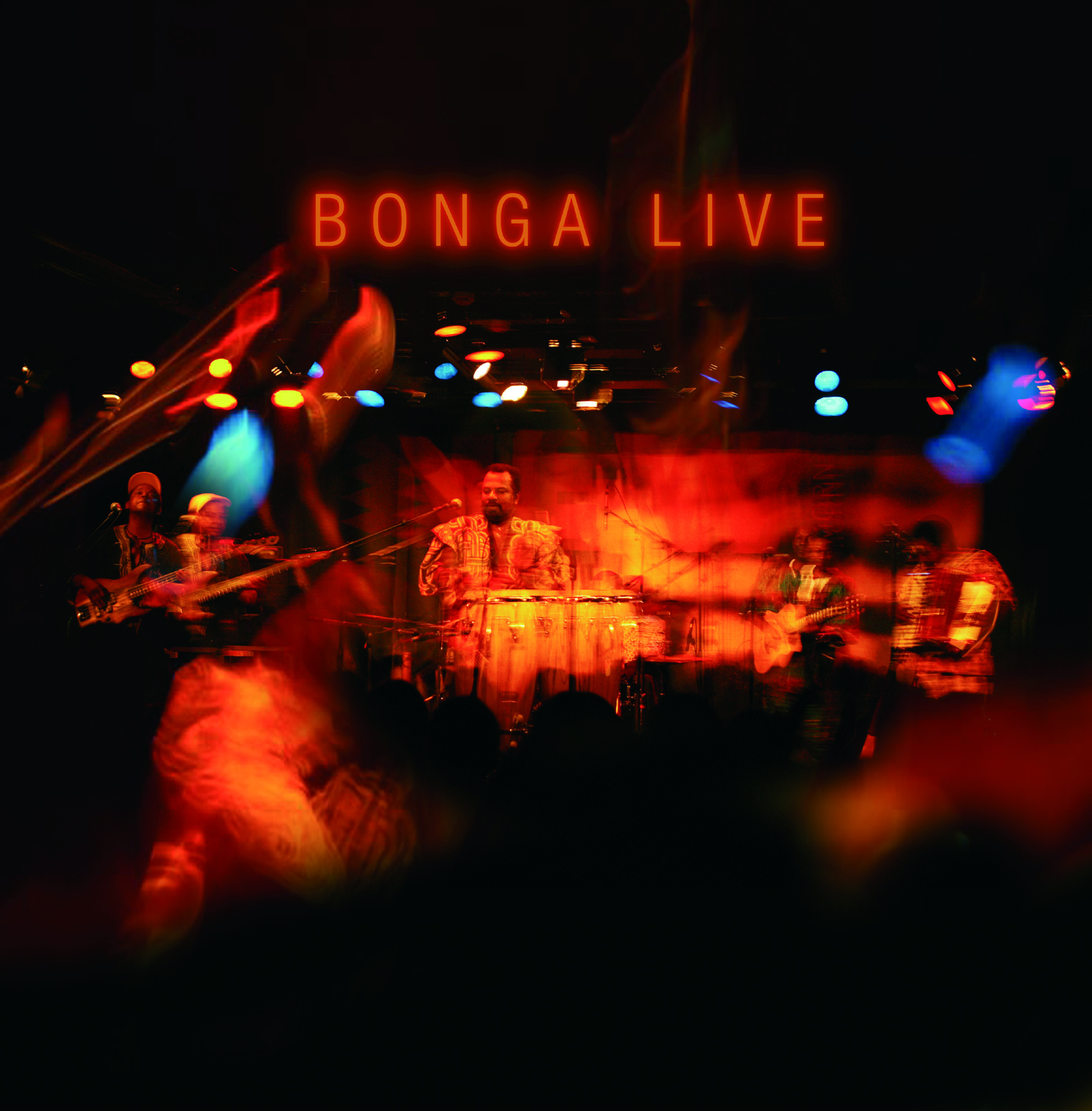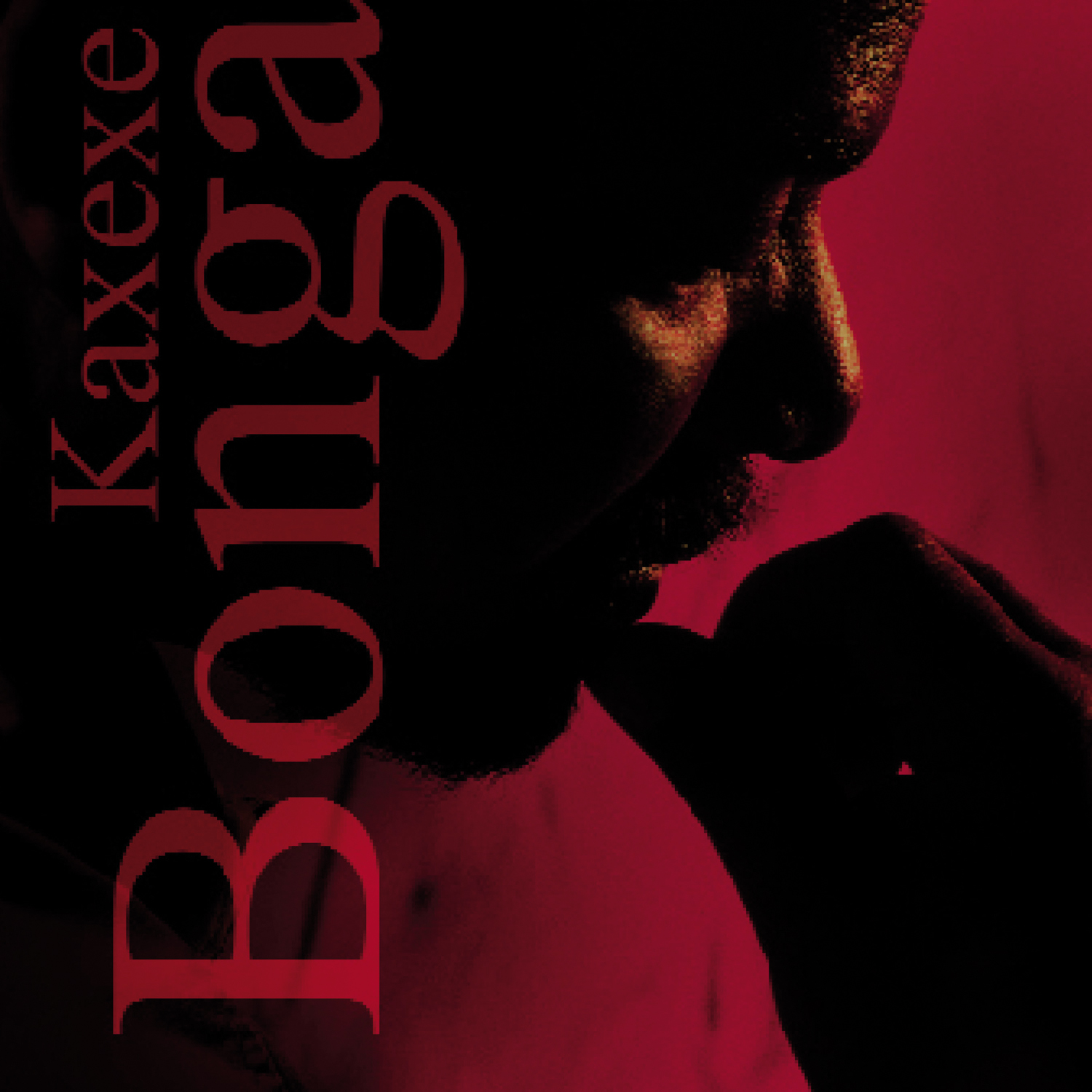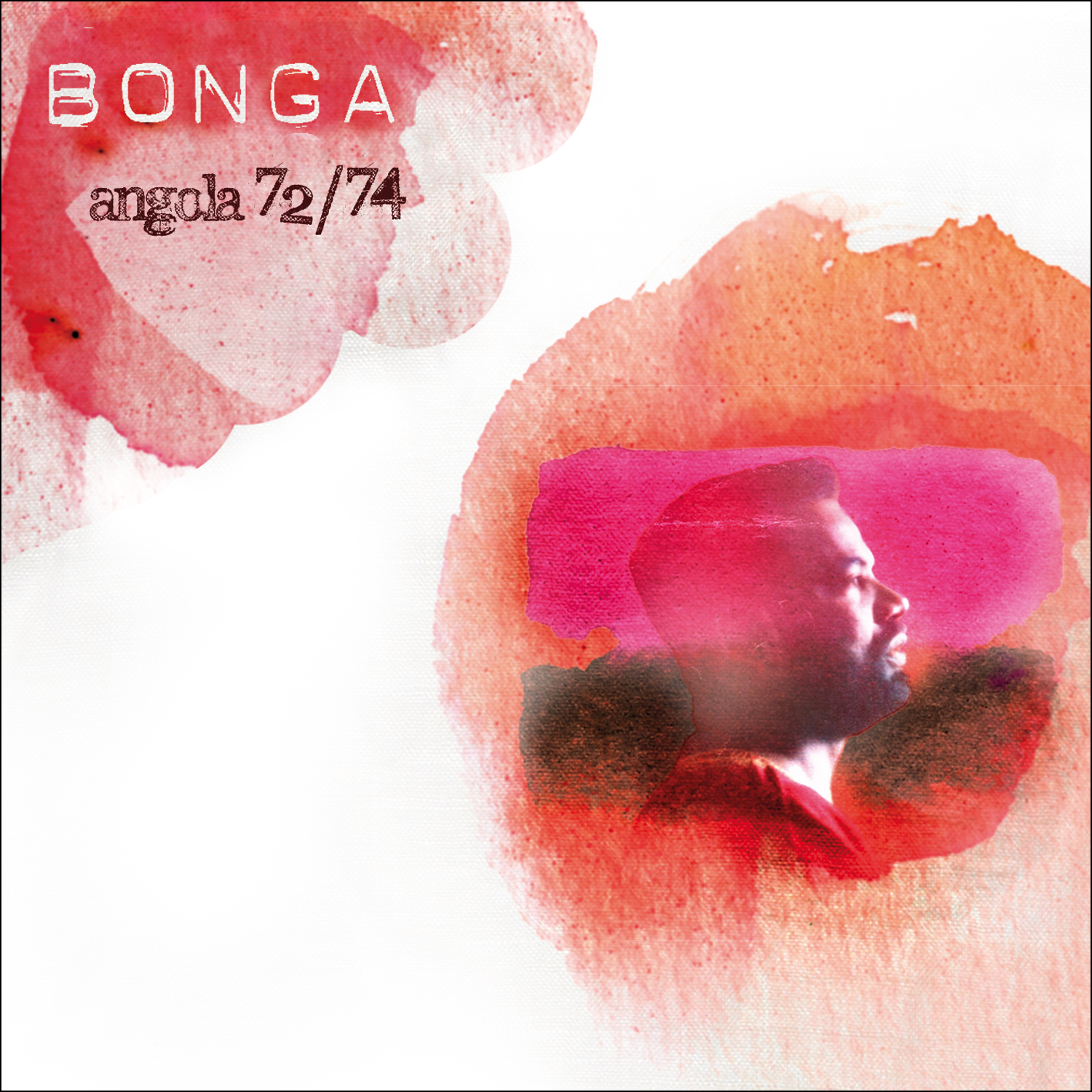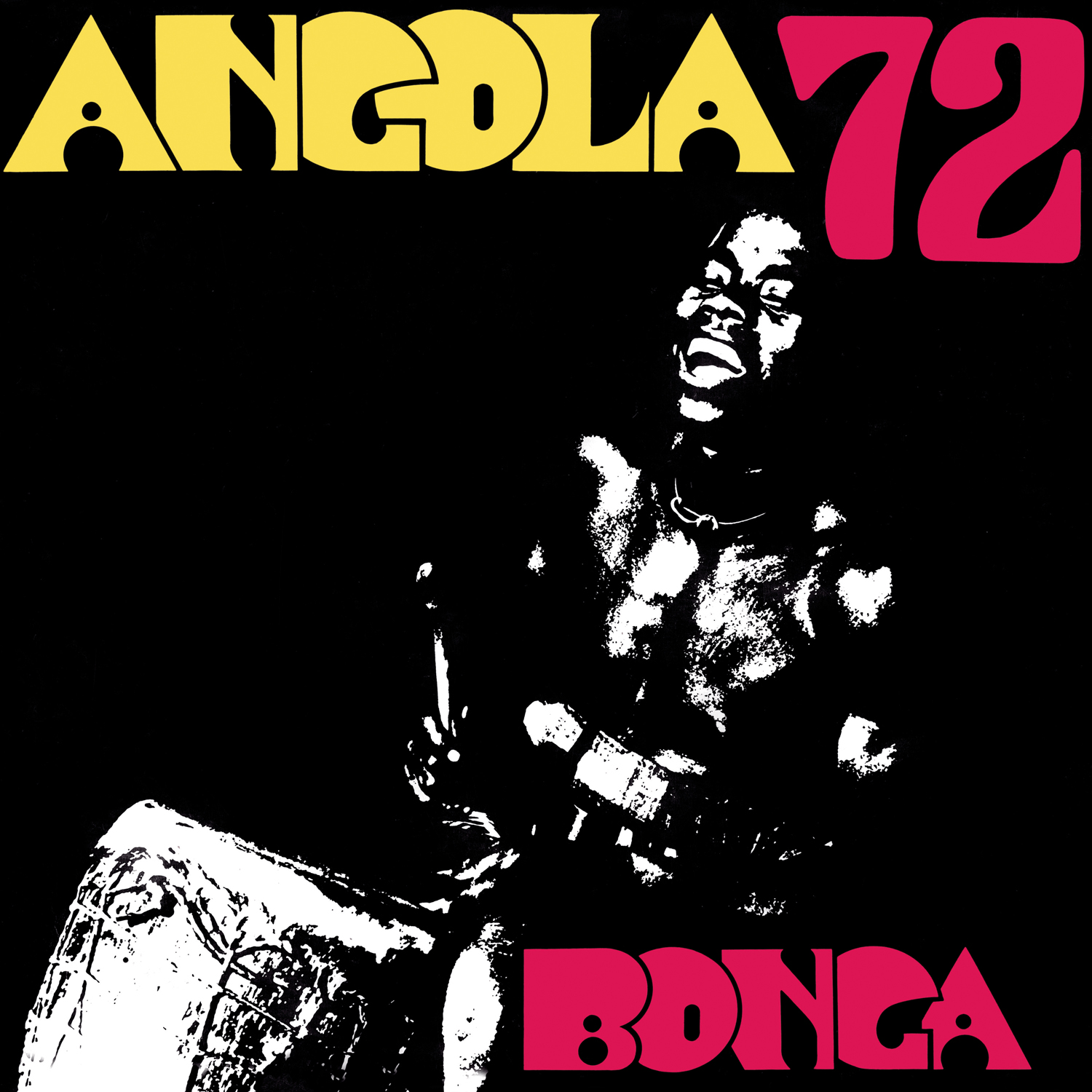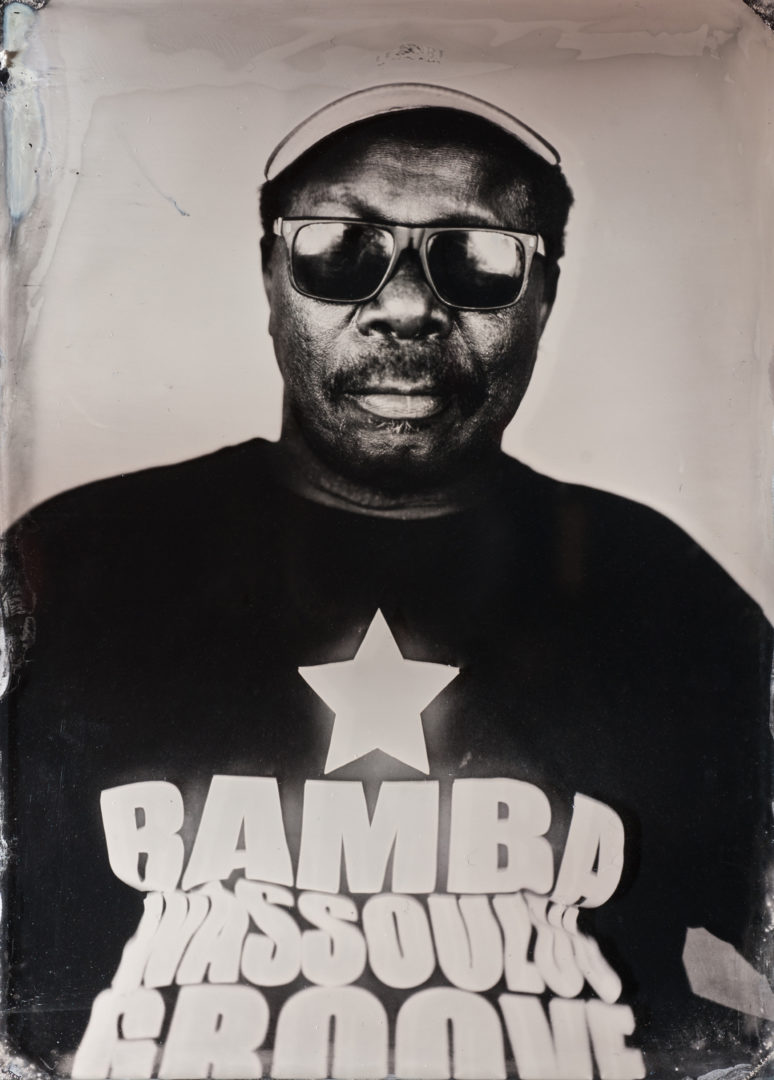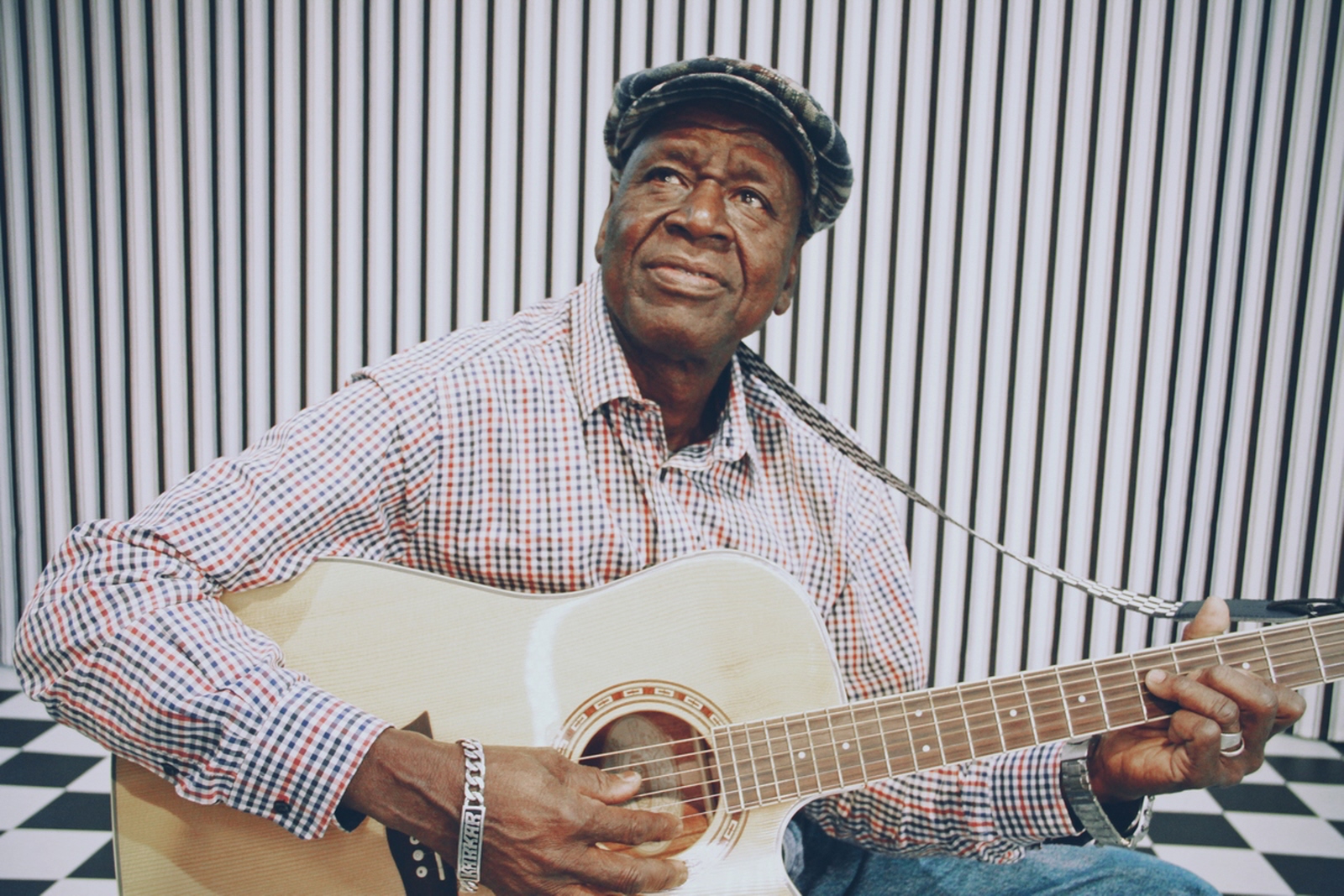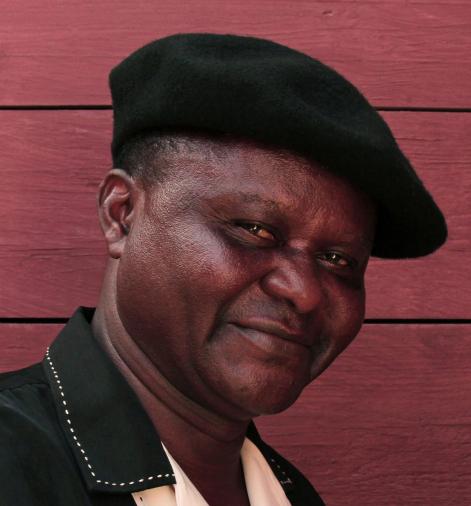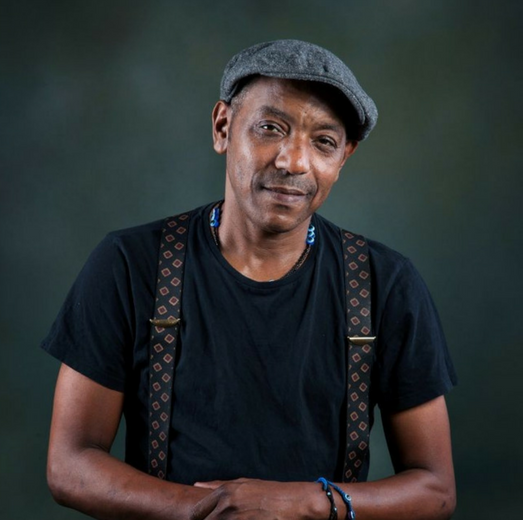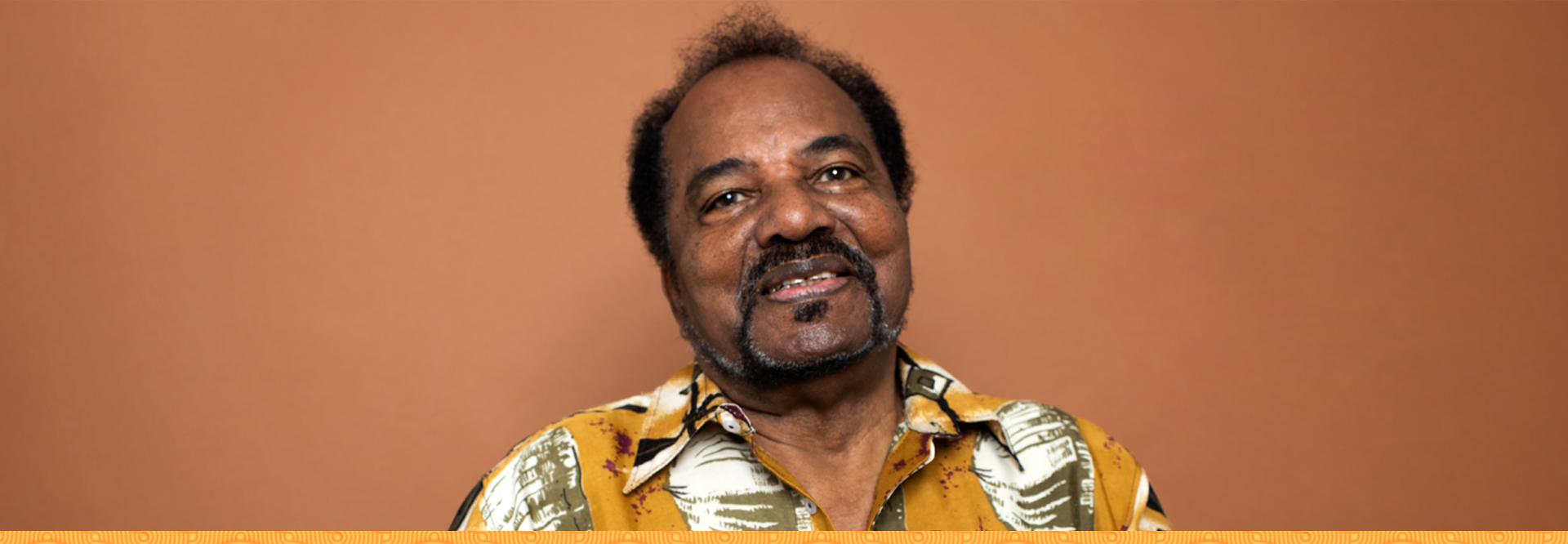
Bonga
Icon of Angolan music
Artist’s website : www.bongakuenda.com
Facebook – Youtube
Biography
Icon of Angolan music Bonga is on first-name terms with the stars and has given true meaning to the concept (albeit multifaceted) of ‘Africanness’. From Luanda to Rotterdam, Paris to Lisbon, and everywhere else, Bonga belongs to that caste of African singers who have sublimated their roots. His rasping, powerful voice is immediately identifiable and anyone listening to his albums remains entranced from start to finish. He was born José Adelino Barcelo de Carvalho in Kipiri on 5 September 1942, but changed his name to Bonga Kuenda when he reached his teens, already showing a keen awareness of the realities of Portuguese colonialism. He learned about music from his father, and rapidly grasped its potential impact when linked to the political aspirations of his generation and an inexhaustible melancholic vein.
As he is always ready to explain, he never faltered in his principles.
“All Angolan culture was under Portuguese domination. Traditional languages were banned, as was African music. We had no weapons to fight with, so we organised cultural resistance, especially by forming folk groups, including Kissueia, my first band. With Kissueia, I sang songs that revived ancestral African forms and whose lyrics clearly referred to the troubled situation at the time, poverty, colonial violence and latent revolt.”
In the mid-Sixties, Bonga’s athletic talents took him to Portugal. There, he ironically became the national 400-metres champion under his birth name while playing an active part in the Popular Movement for the Liberation of Angola. When the Salazar regime finally realised he was playing a double game, he managed to get out just in time and went into exile in Rotterdam in the Netherlands.
There, in 1972, he recorded a harrowing first album soberly entitled “Angola 72”, with Capeverdean musicians for the Dutch label Morabeza (today available on Lusafrica). This key record quickly became something of a soundtrack for Angola’s struggle for independence. Its star song was the emblematic “Mona Ki Ngi Xica”, a lamento of unfathomable Atlantic depth.
His wanderlust then took him to Paris, where he recorded a second album that proved just as important as the first – “Angola 74”, featuring a magnificent version of “Sodade”, which would be popularised by Cesaria Evora nearly twenty years later. With Salazar ousted and Angola now independent, Bonga divided his time between Lisbon and Luanda. He had many hits, but refused to play the part of a Portuguese-speaking Julio Iglesias, although certain producers urged him to do so.
It was not until 2000 that he signed with Lusafrica and immediately released the irresistible “Mulemba Xangola”, sung as a duet with Lura. The song dealt with disturbingly-topical, universal themes. In a way, with its ambience of national reconciliation, this record marked the end of the Angolan Civil War. Three more equally cosmopolitan and danceable albums formulating strong identity-related demands – “Kaxexe” in 2003, “Maiorais” in 2005 and “Bairro” in 2008 – added the final touch to the legend of a singer in perpetual motion. Bonga is unstoppable on stage, and also when he talks about his country with stars in his eyes and a tremor in his warm, hoarse voice. Although he has been living in Lisbon and Paris for around thirty years, his personal history is terribly coherent. “I began my career as a protest singer. I criticised the Portuguese first, and then my own people. The people lost out in the end. Angola has incredible wealth. Today, the aim is happiness. I don’t want to go into politics. I’m too genuine in what I say. I’m not the kind of person to hang around waiting for freedom to happen.”
Year 2009 saw the release of the “Best of Bonga”, a collection of classics, containing also previously-unreleased (“Dikanga”), rare (“Agua Rara”, “De Maos A Abanar”) or remixed (“Kapakiao”) songs. This eighteen-track compilation covers the legacy of a free man and a great singer. Breaking down physical and musical frontiers with songs and music that appeal to the majority, Bonga is the champion of a sublimated ‘Africanness’ and the voice of a modern, peaceful Angola. Then in 2012, it was the turn of “Hora Kota” (The Time of the Elders). This is Bonga’s thirtieth album (his fifth studio album on the Lusafrica label) featuring eleven faultless new songs reporting on the state of his native Angola where he is again living after a very long absence. Bonga is a sincere man with broad shoulders. He knows how to dig in his heels and push back. The Netherlands, Paris, Belgium, Lisbon… Bonga has lived everywhere – and in all those places and more, people recognise his greatness of soul. “Hora Kota” is not for the “doutores” – the dignitaries that the downtrodden people invariably called “doctor”. It is a remedy for the blues.
At an age when most people are enjoying a well-earned retirement, Bonga is hugely in demand. Singer Bernard Lavilliers, the perpetual rebel, has covered “Mona Ki Ngi Xica” in French as a duet with the Angolan. African artists of the new generation (such as Gaël Faye and Lexxus Legal) cite his influence and Ana Moura invited him to join a tribute to Amália Rodrigues in Portugal. On his last album “Recados de Fora” (Messages from Elsewhere), Bonga – who just celebrated his 74th birthday – tells the tale of a fascinating journey across different times and continents. The Atlantic Ocean forms an ever-present connecting thread. The singer-songwriter looks back pell-mell over his youth, his increasing awareness of Portuguese colonization, how his father introduced him to music, and his love of semba, the symbol of Angolan national identity (kizomba, a favorite genre for younger generations, is a modernized version of semba). In fact, as one of the last great names in postcolonial African music, Bonga embodies semba today – a fact clearly reflected in “Tonokenu”, a song in the purest tradition of his roots.


